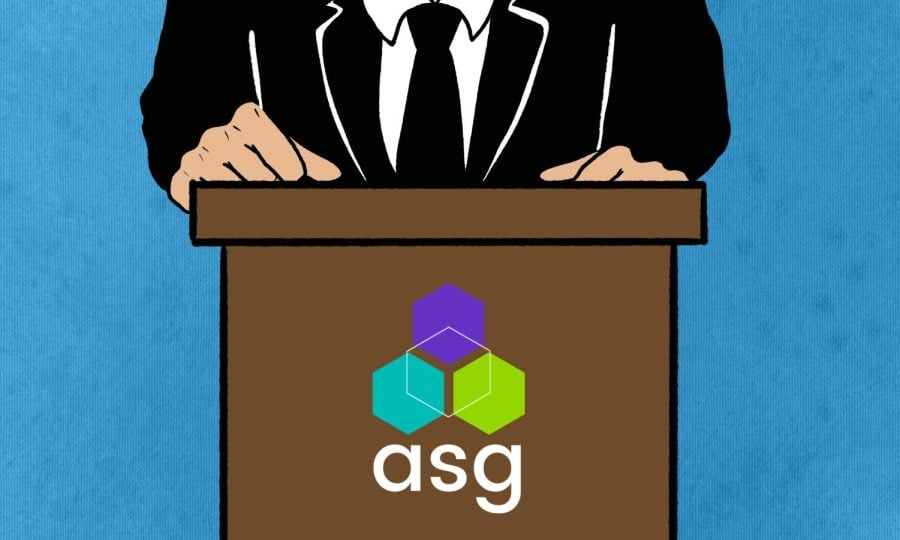The Associated Student Government welcomed its first guest speaker of the quarter to discuss the role of the Northwestern Office of the Ombudsperson. The body also discussed proposed code reforms and opened applications for student group senators and new student group funding during its Wednesday meeting.
Associate Ombudsperson Kamaria B. Porter opened the meeting with a presentation on behalf of the NU Office of the Ombudsperson. She explained that the office serves as a conflict resolution resource for everyone connected to the University, including students, faculty, staff, administrators, alumni and family members.
“You can kind of get it all out at the (Ombudsperson Office),” Porter said. “We often help people frame and reframe what they want to say, use persuasion tactics so you can get the best outcome out of any conversation and just get all those difficult feelings out with someone who’s confidential.”
The Ombudsperson office helps with academic, interpersonal and well-being issues, offering guidance, mediation and conflict coaching while connecting individuals to relevant resources like Counseling and Psychological Services and University leaders. The office is also defined by what Porter described as four qualities: confidential, impartial, informal and independent.
Porter specifically pointed to the fact that “even issues that are related to Title IX or discrimination are kept confidential.” She added that this is different from many other faculty or administrators who have a mandatory obligation to report that.
SESP sophomore Britney Perez sought clarification on the confidentiality aspect, asking for further details on what is protected under this quality of the office.
“You said that your reporting obligations are different from the rest of the institution,” Perez said during the meeting. “Just to clarify, (you aren’t) obligated to report sexual misconduct, discrimination and harassment?”
Porter clarified that while the office prioritizes confidentiality, it must report cases involving imminent harm or child and elder abuse, emphasizing its focus on “empowering people” by connecting them to relevant resources in the University.
After Porter concluded her speech, the Senate reviewed proposed changes to its code with the senators. One proposal aimed to eliminate the requirement for a two-week gap between the introduction and the vote on constitutional amendments, while another sought to prevent conflicts of interest by prohibiting members from serving on both the Rules Committee and the Election Commission.
Another proposal was made to require a two-thirds majority of senators to pass any changes to the Election Commission’s guidelines for consistency, as changes to the ASG code or constitution also require a two-thirds majority.
An additional element was added to the code, introducing “Official Statements,” which allows a senator to propose a statement on behalf of the Senate or Executive Board. The statement must be approved by a two-thirds majority of either body and both can release statements independently through ASG media channels.
As the meeting came to a close, Weinberg junior and Speaker of the Senate Grace Houren reported on the Executive Board updates, which included information on applications for both student group senators and the New Student Organization Support Fund.
Each year, ASG evaluates which student groups are best suited to represent NU students in the Senate. Applications are now open for 12 student group Senate seats, which will run from Spring Quarter of 2025 to Winter Quarter of 2026. The application process includes a review and interviews from Feb. 18 to Feb. 23, with final decisions being made prior to March 3.
“We try and go for groups that are as broad and representative as possible, and usually groups that represent more identities, like affinity groups or political groups, or groups that otherwise wouldn’t be as represented if they didn’t have a Senate seat,” Houren said.
Additionally, ASG Senate partners with the Student Activities Finance Committee to award the NSOSF, which provides additional quarterly funding for new student organizations. Any student group that has been active for two years or less is eligible to apply for allocations from the $10,000 fund.
New student groups seeking funding at the NSOSF Funding Senate on March 5 must submit their applications by Feb. 23.
Email: janellemella2027@u.northwestern.edu
Related Stories:
— The Daily Explains: Who is Northwestern’s ombudsperson?
— New student organizations outline funding plans, reflect on NSOSF Funding Senate
— ASG Senate allocates $10,000 in funding to new student organizations, swears in new co-president






